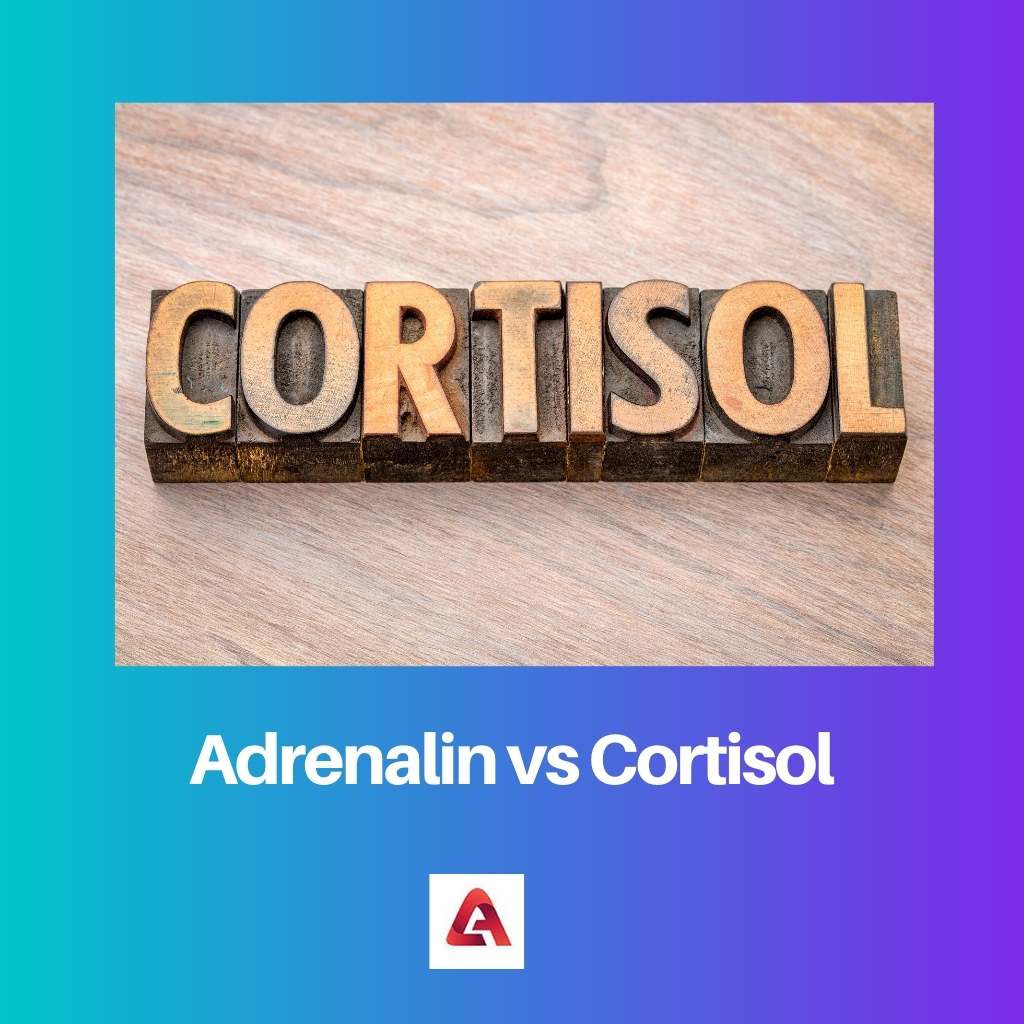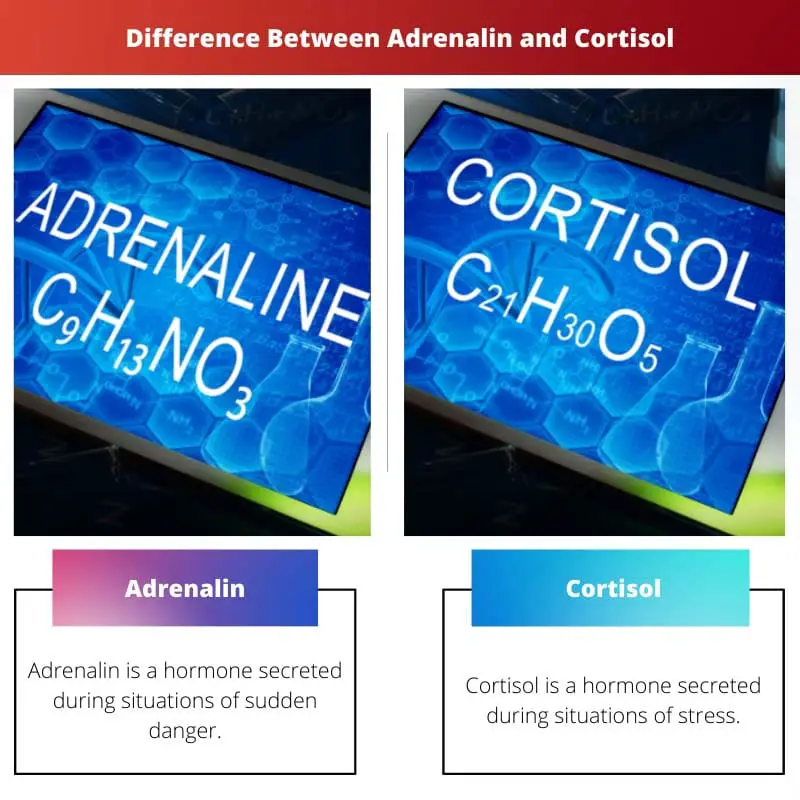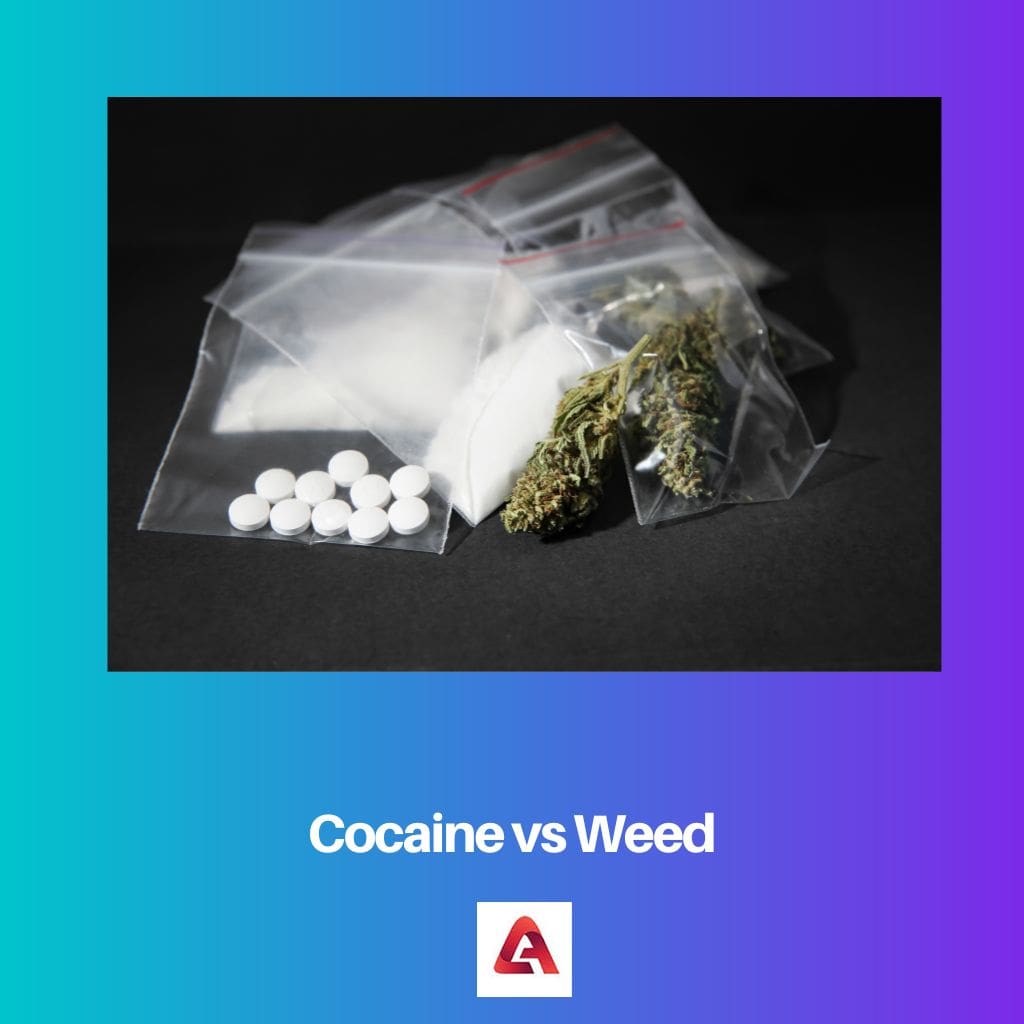Hormonal changes in the body and the secretion of different types of hormones are very closely linked to how we feel during moments of fear, stress, happiness, and so on.
Hormones are chemical compounds produced by the body that regulate the various mechanisms of the body.
Key Takeaways
- Adrenalin, also known as adrenaline, is a hormone that prepares the body for a “fight or flight” response during stressful situations. At the same time, cortisol is a hormone that helps regulate stress responses over time.
- Adrenalin increases heart rate, blood pressure, and glucose levels, whereas cortisol helps maintain energy levels and immune function.
- Adrenalin acts quickly and for a short duration, while cortisol has a slower, more sustained effect on the body.
Adrenalin vs Cortisol
The difference between Adrenalin and Cortisol is that the body secretes Adrenalin during moments of sudden danger, hence the hormone is also known as the “flight or fight” hormone. Cortisol, on the other hand, is secreted by the body during situations of high stress. The effects of Cortisol are also comparatively longer.

Adrenalin is a hormone produced by the body during situations of sudden danger. It is produced when an immediate and quick reaction is needed.
Hence the hormone is commonly known as the “flight or fight” hormone. One common effect of the hormone is the increase in heart rate.
Cortisol is also a hormone produced by the body. The hormone is most secreted during intense situations or at times of high stress.
The hormone is commonly referred to as the “stress” hormone, as it is produced only during stressful situations. The release of this hormone stabilizes the blood pressure.
Comparison Table
| Parameters of Comparison | Adrenalin | Cortisol |
|---|---|---|
| Definition | Adrenalin is a hormone secreted during situations of sudden danger | Cortisol is a hormone secreted during situations of stress |
| Purpose | It is secreted when immediate action is required | It is secreted when a stressful activity is to be performed |
| Effects | The heart rate increases during adrenalin secretion | Cortisol secretion stabilizes the blood pressure |
| Duration | The effects only stay for a few seconds | The effects are comparatively longer, lasting for a few minutes |
| Consequences | Too much secretion of adrenalin may lead to exhaustion and fatigue | Too much secretion of Cortisol may lead to elevated stress levels |
What is Adrenalin?
Adrenalin is a hormone secreted by the body during situations of sudden danger. It is a response system of the body that is triggered in such situations, leading to the secretion of this hormone.
As hormones are responsible for the functioning of the different mechanisms of the body, the secretion of Adrenalin helps the body react accordingly in the face of danger.
As the response required in such situations is immediate and quick, the hormone is also known as the “Flight or Fight” hormone due to its nature.
Adrenalin is produced in the Adrenalin glands. Although they are primarily released from these glands, some quantity of Adrenalin is also released from the brain. One of the primary functions of Adrenalin is to increase the heart rate.
As more blood flows through the body, more oxygen is consumed, and thus the rate of breathing also increases. This is followed by the tightening of muscles, of the hands and legs and the abdomen.
More amount of energy gets consumed during the process, and the person feels more energetic with the release of Adrenalin.
As the hormone is secreted into the brain, the power of attention also increases, and the person becomes more aware of the surroundings.
What is Cortisol?
Cortisol is also a hormone produced by the body.
The hormone is also produced and released by the Adrenalin glands, although the release of the hormone is not a single-step process, and it involves the reaction between a couple of different hormones.
It is commonly referred to as the “stress hormone” as it is primarily released during situations of high stress. The release of his hormones triggers the mechanism of the body that deals with such stressful situations.
The hormone is also known as the “survival hormone,” as the release of this hormone is also linked to the primal, survivalist instincts of the human body.
As the same Adrenalin glands release the hormone, it is released in the same locations of the body, leading to similar reactions as a response to the release of the hormone.
Thus some of the reactions to the release of this hormone are a tightening of muscles, an increase in attention, and a feeling of an increase in energy in the body.
Apart from these reactions, this hormone also stabilizes blood pressure, creating a sense of peace in the mind.
Along with this, the hormone also suppresses the reproductive drive of the body, digestion, and even the immunity system.

Main Differences Between Adrenalin and Cortisol
- Adrenalin is a hormone secreted during situations of sudden danger. Cortisol is a hormone secreted during situations of stress
- Adrenalin is secreted when immediate action is required. Cortisol is secreted when a stressful activity is to be performed
- The heart rate increases during adrenalin secretion. Cortisol secretion stabilizes the blood pressure
- The effects of Adrenalin only stay for a few seconds. The effects of Cortisol are comparatively longer, lasting for a few minutes
- Too much secretion of adrenalin may lead to exhaustion and fatigue. Too much secretion of Cortisol may lead to elevated stress levels





